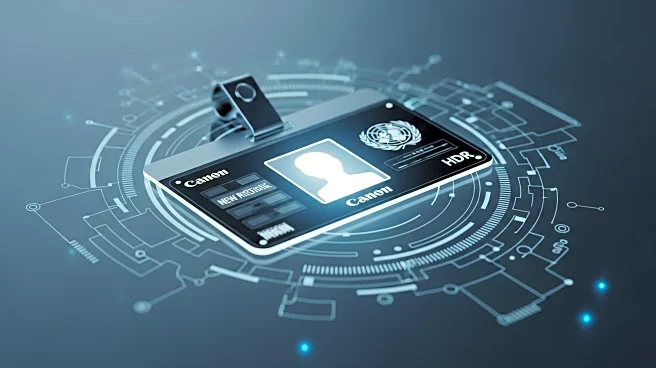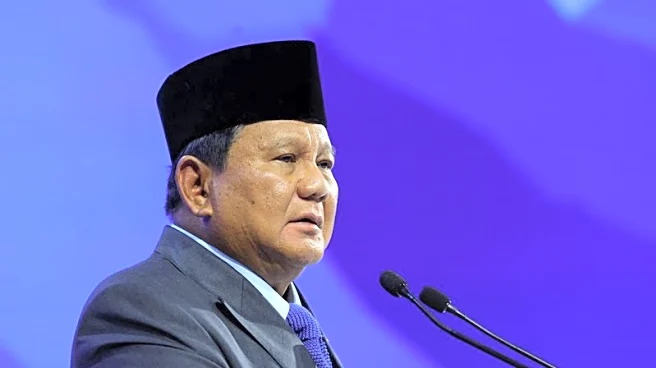What's Happening?
The United Nations has introduced a Digital ID system designed to provide a universal identity solution for its workforce. Sponsored by the High-Level Committee on Management, this initiative aligns with the Secretary-General’s vision for a more efficient UN. The system aims to reduce data duplication and streamline processes, allowing staff to securely share personal and professional data. The Digital ID system is developed with principles such as security, privacy, and interoperability, and is intended to enhance operational efficiency across the UN.
Why It's Important?
The UN Digital ID system represents a significant step towards modernizing identity management within large organizations. By reducing bureaucratic delays and operational costs, the system could improve the efficiency of UN operations, allowing staff to focus on their core responsibilities. The initiative also highlights the importance of secure and interoperable digital identities in global organizations, potentially influencing other international bodies to adopt similar systems. The emphasis on privacy and control over personal data is crucial in maintaining trust and security in digital identity solutions.
What's Next?
The UN plans to expand the Digital ID system across its entire workforce, implementing additional use cases to enhance its functionality. As the system is rolled out, it will be important to assess its impact on operational efficiency and data security. The UN may collaborate with other international organizations to share best practices and develop standards for digital identity management. The success of this initiative could pave the way for broader adoption of digital IDs in global institutions, promoting more efficient and secure identity management.
Beyond the Headlines
The introduction of the UN Digital ID system raises questions about the role of digital identities in global governance. As organizations increasingly rely on digital solutions, ensuring that these systems protect individual privacy and data security will be paramount. The UN's approach to digital identity management could serve as a model for other international bodies, emphasizing the need for secure and interoperable solutions in a connected world.









